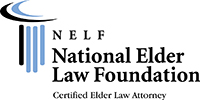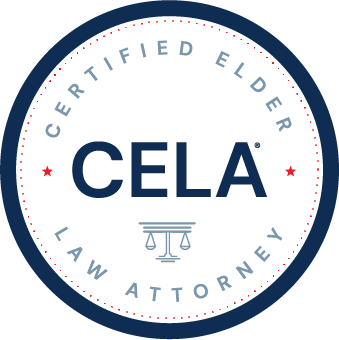- If I Don't Transfer Assets Sixty Months Before Entering a Nursing Home, I Can't Make Any Transfers.
Not true. The five-year rule is a look back rule. It has nothing to do with when a person enters a nursing home. It has to do with when a person applies for Medicaid. There is a question on the Medicaid application that reads, "Have you transferred any assets to an individual in the last five years?" If a transfer has taken place during that period of time, there may be a period of time the Medicaid applicant is not eligible for Medicaid. The penalty period can be longer or shorter than five years.
- I Can't Transfer Assets after I Am Already in a Nursing Home.
Again, the same rule applies. Neither the look back nor the penalty period has anything to do with when a person enters a nursing home. Under the look back rule, all transfers and financial information must be disclosed to the Medicaid agency five years prior to the date of the Medicaid application. The penalty period is a completely different rule. The penalty period is calculated by dividing the amount of the transfer by the State Divisor Rate. For 2023, the State Divisor Rate in Colorado is $9,186. There are complicated rules on when the penalty period begins.
- To Protect My House I Should Give it to My Children Right Away.
This is almost always untrue. Before you give your house to your children, you should consider the tax and Medicaid ramifications of such a gift. A common mistake is for a person to give a house to a child after the house has significantly appreciated in value. When the child sells the house, the child must pay the capital gains tax on the gain. If the house is sold by the parent, capital gains tax is usually avoided. Often the solution is to transfer the house into a trust. Each case must be analyzed individually.
- I Was Told my Only Choice Was to Spend Down.
In the case of a married couple, it is almost always unnecessary to spend down. If spending down is the only advice you are receiving, then you are talking to the wrong person.
- You May Not Apply for Medicaid Within Five Years of Making a Gift.
As indicated above, the five year look back has nothing to do with the penalty period. A penalty is calculated by dividing the value of the assets gifted by the State Medicaid Divisor. This calculation results in a number of months for which a person making a transfer is ineligible for Medicaid. The penalty period does not apply to transfers between spouses.
- There Is No Hurry to Begin Medicaid Transfers.
One thing that is extremely time sensitive in Medicaid planning is making a transfer early. The transfer penalty does not begin until the transfer is complete. You should consult a qualified elder law attorney before making any transfers.
- I Don't Need to Disclose Assets to Medicaid If I Am Not Reporting Income from Those Assets on My Income Tax Return.
Failure to disclose assets to Medicaid such as annuities or EE bonds that do not produce current income is a crime subject to a term of imprisonment. ALWAYS DISCLOSE everything to Medicaid.
- If One Spouse Goes to a Nursing Home All of His or Her Income Goes to the Nursing Home.
The spouse in a nursing home is allowed to keep $90 per month in Colorado as a personal needs allowance. In addition, the person may keep an amount necessary to pay for their private medical insurance. The law also guarantees that the well spouse receives a minimum amount of income. For 2023, the well spouse is guaranteed at least $2,288.75 of income per month.
- All Nursing Homes and Assisted Living Facilities Accept Medicaid.
Probably 70% of nursing homes and 50% of assisted living facilities in Colorado accept Medicaid. A person intending to apply for Medicaid must determine at the time of admission if the facility accepts Medicaid.
- If a Facility Takes Medicaid, I Will Not Have to Private Pay If I Am Eligible for Medicaid.
Unless a person enters a nursing home on Medicaid, most facilities require a period of private pay. At the time of admission, if the person cannot show that they have sufficient funds to satisfy this period of private pay, they will not be admitted. This private pay requirement or "key money" requirement varies from facility to facility. It can be anywhere from two months to two years.
Call (720) 200-4025 now or email us to find out how our attorneys can help with your Medicaid Planning needs.











